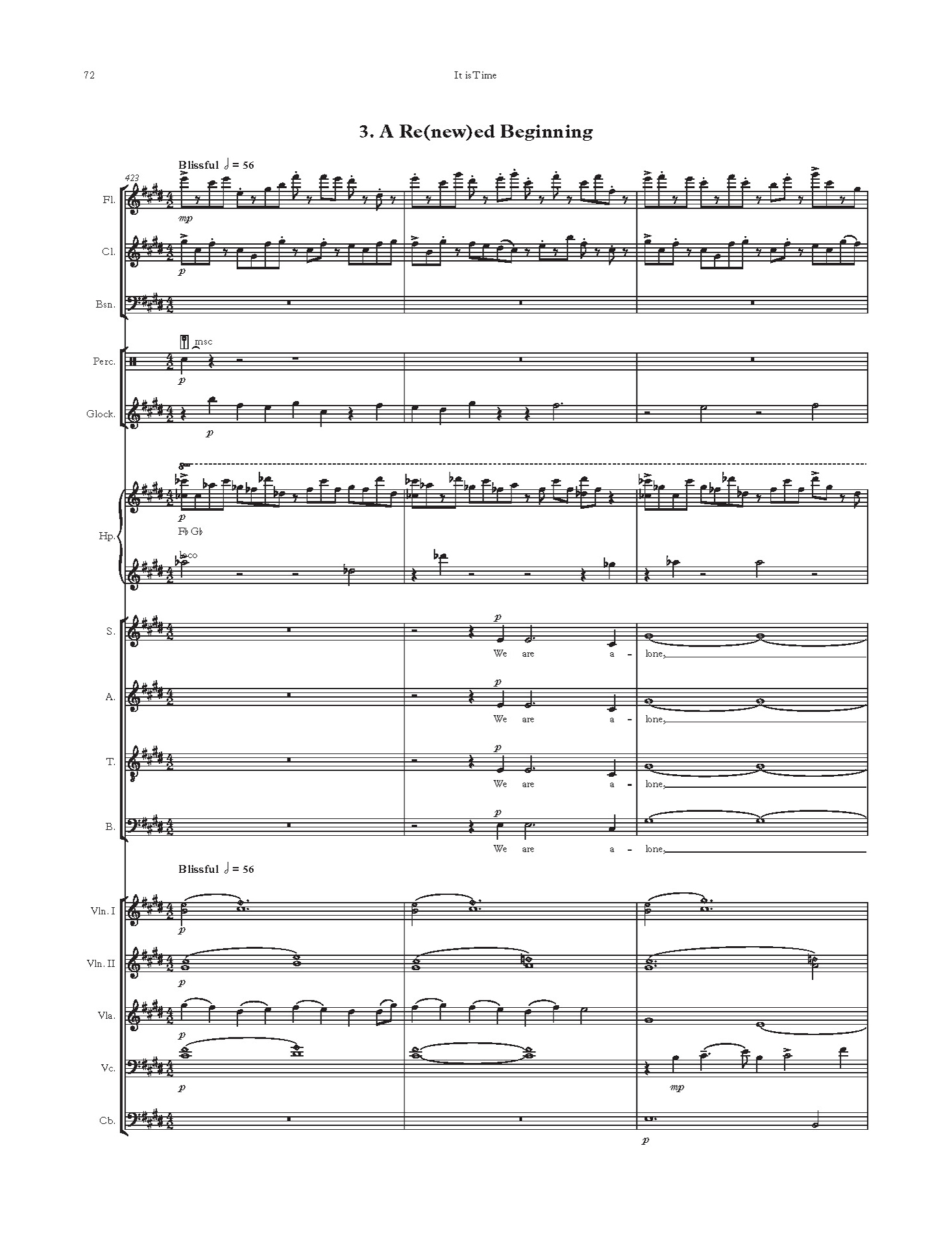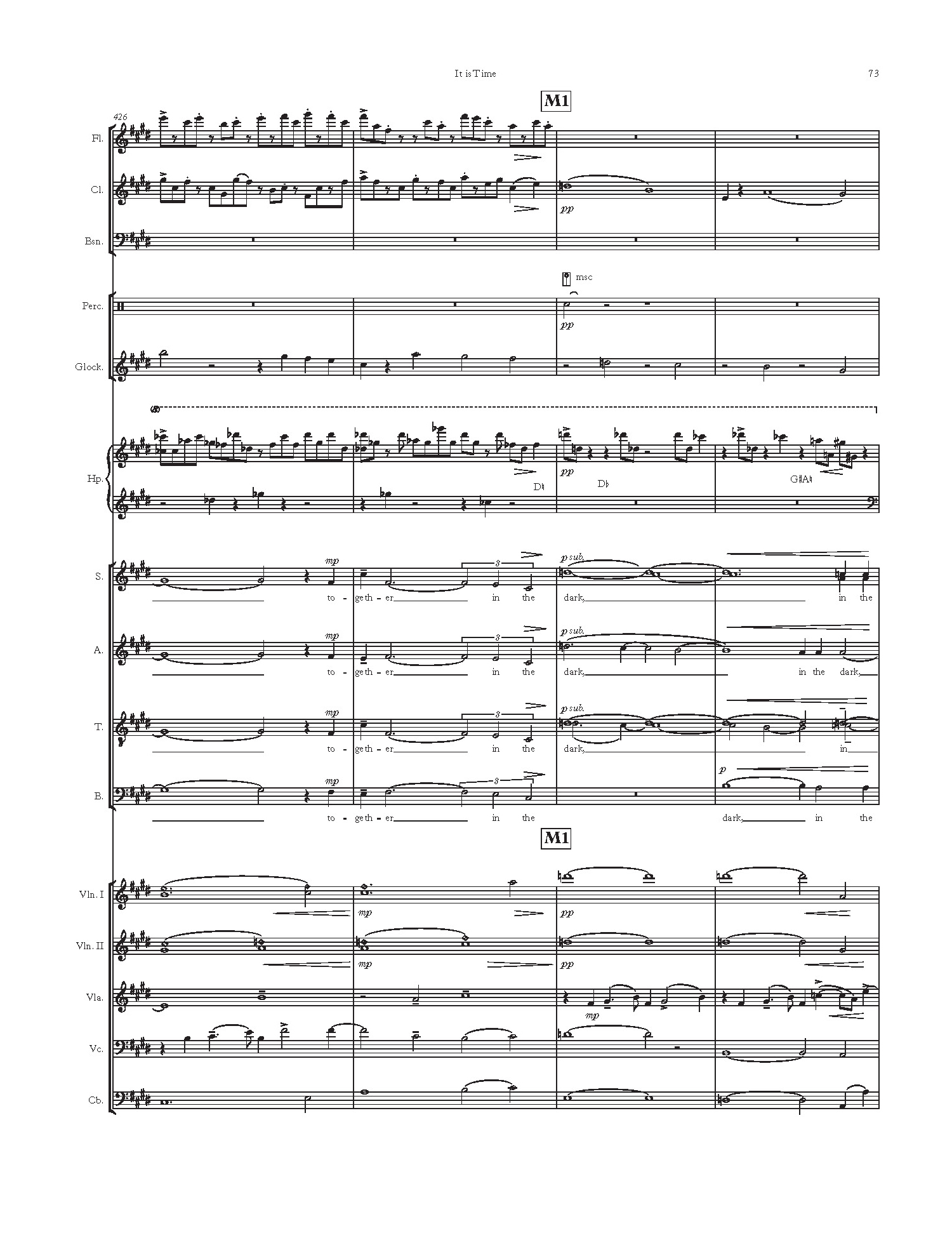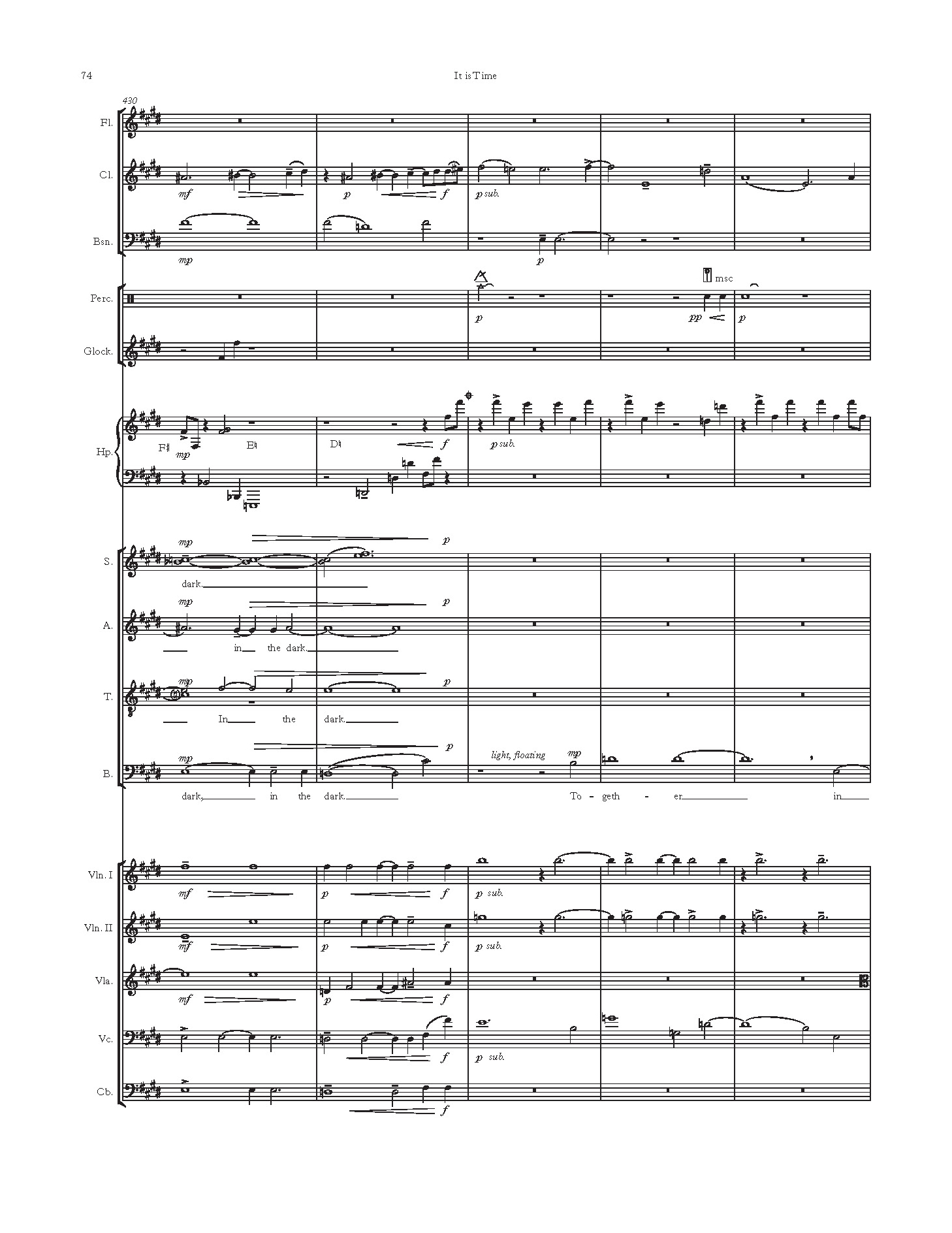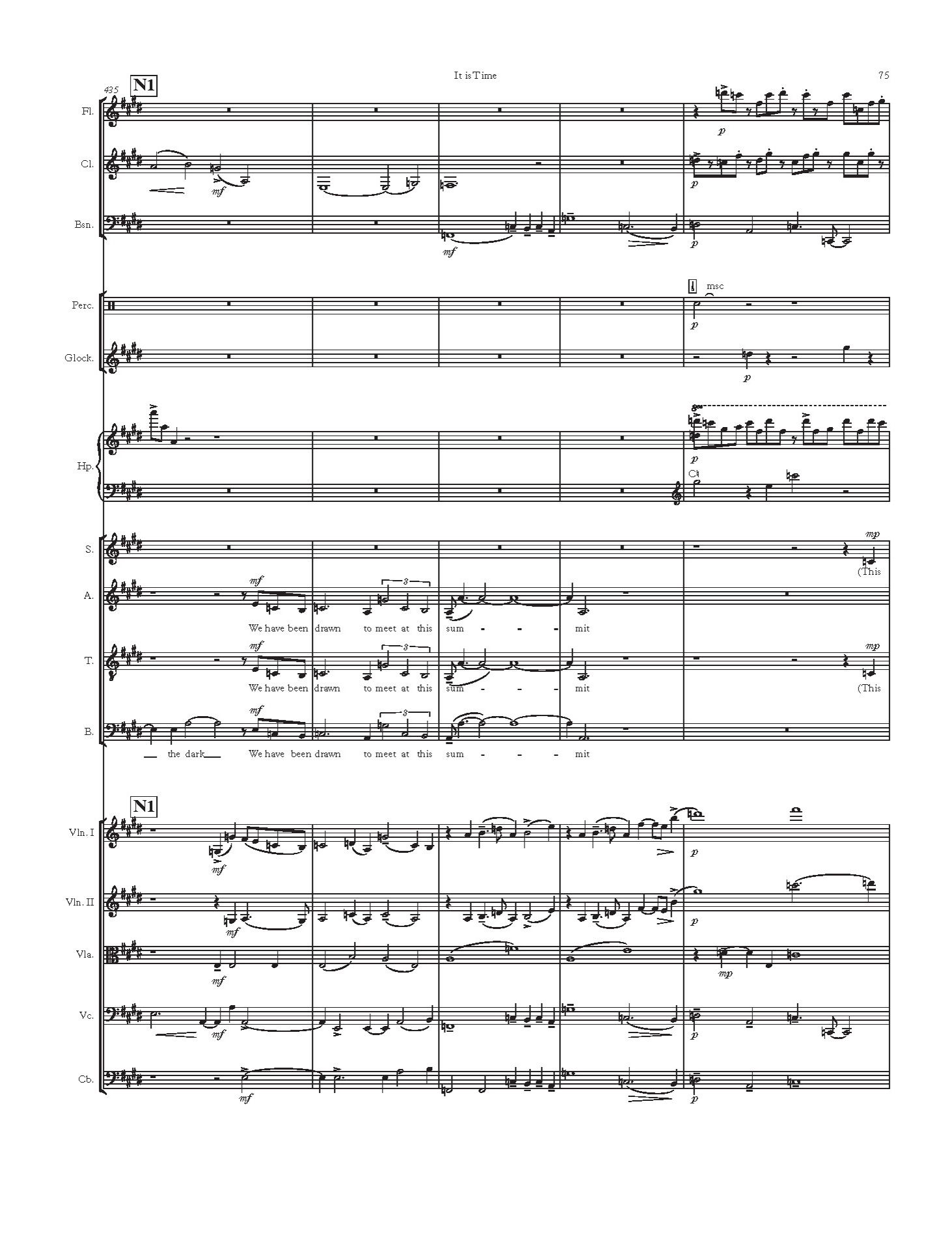It is Time (2019)
For SATB double chorus and chamber instrumental ensemble (2018-19) Duration: 22 minutes
Instrumentation
fl cl bn hp perc 2 vn va cvc cb
Poetry by Roberto Ifill For Gisèle Becker and Cantate Chamber Singers
1. the sense of an ending
2. La Fin Est le Commencement
3. A Re(New)ed Beginning
Listen
the sense of an ending (excerpt 1)
the sense of an ending (excerpt 2)
La Fin Est le commencement
A Re(new)ed Beginning
Cantate Chamber Singers, May 2019
Program Notes
It is Time, for SATB double chorus and chamber instrumental ensemble, was commissioned by Cantate Chamber Singers in honor of Music Director Gisèle Becker’s retirement.
The piece, in three movements, sets poems of Roberto Ifill, each of which speaks to beginnings and endings. The overarching theme of the poems, and of the piece, is arrival at a significant moment – in Cantate’s case, a moment of ending one directorship and ushering in a new one.
But, Ifill’s poetry, in a larger sense, likens our human transitions to those of the natural world, contextualizing our own moments of passage within the larger drama of nature.
The piece begins with a bittersweet melody in g minor. In many ways, this melody is the foundation of the piece, and the entire work is a type of informal set of variations on and around that theme. It appears in all three movements and is heard (fittingly) at the beginning and end of the piece. Along the way, the melody appears from time to time during each movement. Ironically, in spite of its fundamental nature, the chorus never sings this melody. It is rather a wordless instrumental presence, influencing the choral music while keeping a distance from it, as well.
The text of the first movement, “the sense of an ending,” travels through the seasons, beginning with spring and ending with the autumnal harvest. The gentle, melancholy tone of the poetry influences the musical setting, which – though occasionally rising to great dynamic heights – remains primarily a lyrical movement.
The middle movement, “La Fin Est le Commencement” (The end is the beginning), speaks to the dual nature of moments of arrival. The poem’s title is influenced by the work of 14th-century composer Guillaume de Machaut and his “My end is my beginning and my beginning is my end,” a palindromic composition. The music is highly imitative, speaking to the love of puzzles which poet Ifill enjoys. Headed by the performance indication, “Almost too Serious,” hand percussion (woodblock, guiro, cowbell, etc.) gently mocks the seriousness of the counterpoint.
The final movement entitled, “A Re(new)ed Beginning,” uses the occasion of a Maine sunrise as a foundation. Beginning in the starry pre-dawn hours, the poem depicts a small group of people gathering on a mountaintop in order to be first in the country to see the sun rise. The instrumental sound, beginning with starry-night sparkles, becomes richer and darker as the music progresses. The sunrise finally appears – most quietly depicting the first moment in which the rising sun peeks over the horizon – and the piece begins to wind to its close. A coda features the return of the foundational melody, now interspersed with statements from small groups drawn from the chorus.
The work is scored for flute, clarinet, bassoon, 1 percussion, harp, 2 violins, viola, cello, and double bass.
—Andrew Earle Simpson



